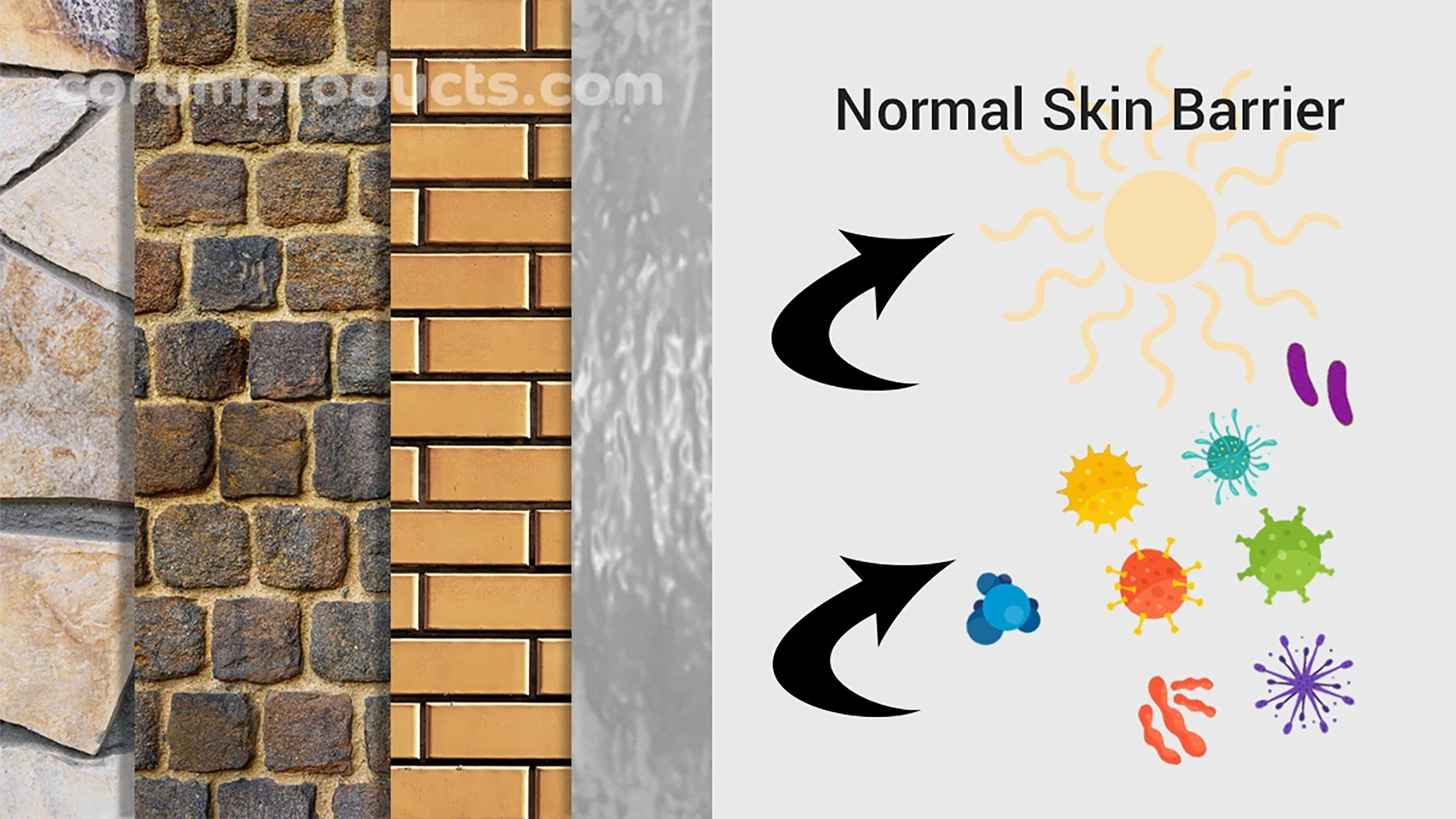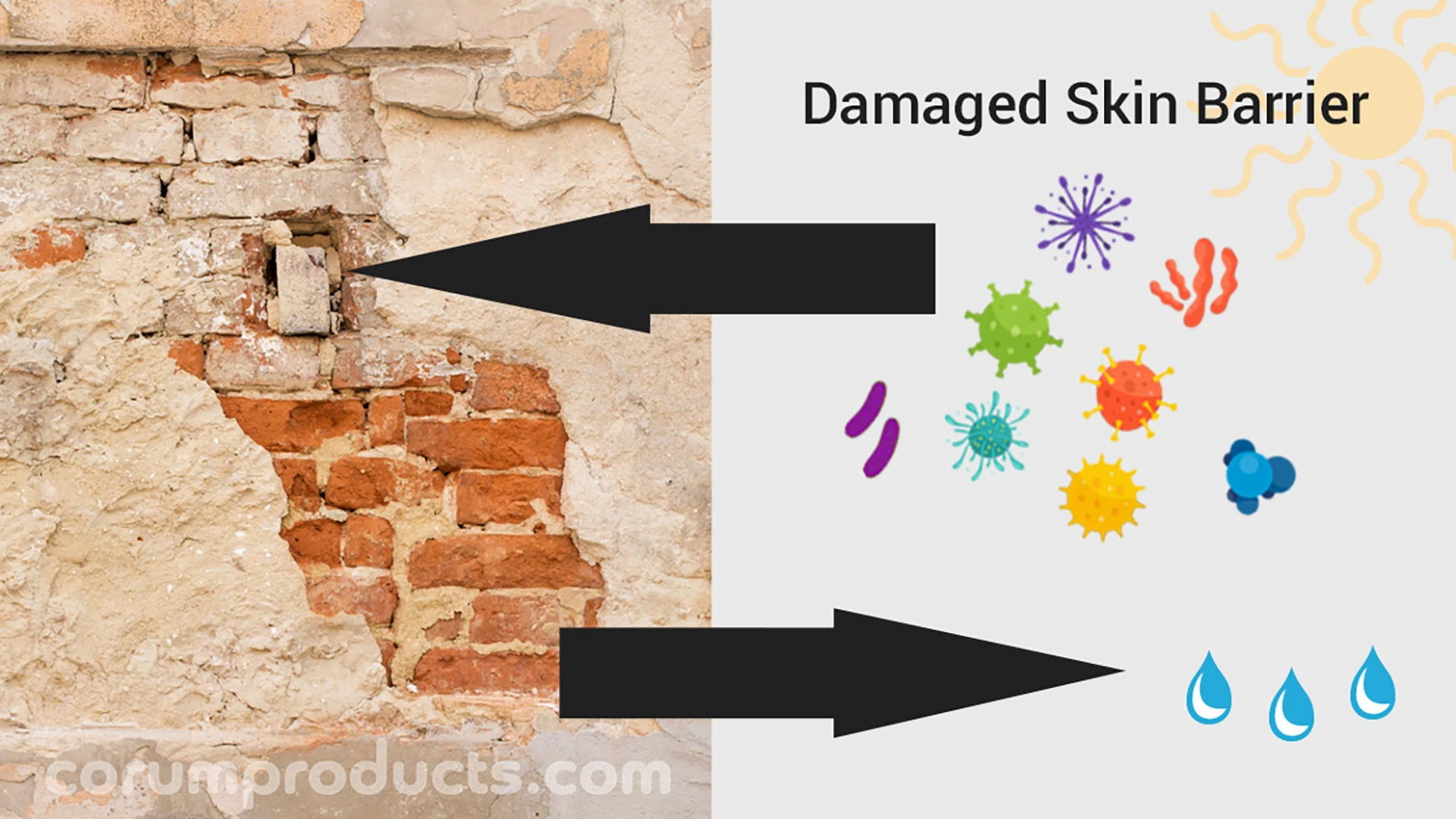

The skin acts as a barrier to keep good things inside the body and harmful things out. Healthy skin is like a new wall with several layers.
The outer “brick” layer of the skin is called the stratum corneum, and that is the layer usually referred to as the skin barrier. The cells in the stratum corneum (corneocytes) are like bricks, and they are held together with a matrix of lipid, phospholipid, and water layers that act as the mortar. Lipids are oily, waxy substances mostly consisting of ceramides, cholesterol, and fatty acids.
The “bricks” are “painted” with a thin, water-repellent oily triglyceride layer called sebum.
This beautifully engineered, multi-layered “wall” keeps water, beneficial bacteria, and cell-building materials inside the skin, while keeping out potential threats from harmful bacteria, viruses, irritants, the sun, and allergens.


Sometimes the skin doesn’t function as it should due to factors beyond our control, such as age, allergies, climate, injury, or genetics. But there are many things we can do to injure the skin. Below, I list some of the areas of concern. In separate posts, I expand on how to avoid and reverse skin barrier damage.


The term “thin-skinned” often describes someone sensitive to criticism, a metaphor rooted in biology—thin skin is more vulnerable to external damage.
The skin barrier consists of roughly 20 layers of cells, varying in thickness across the body. Areas like the eyelids have fewer layers, while the palms and soles are more heavily protected. To strengthen the skin barrier, focus on building density and avoid products or habits that thin it out.
If the lipid/water layer (the “mortar”) of the stratum corneum becomes dry and cracked, or if the sebum layer is too thin, tiny holes can develop in the “wall” so that water escapes (trans-epidermal water loss). Moisturized skin keeps the water in! Dry skin becomes vulnerable to attack. Dry skin can also cause more wrinkles.
Just like in the gut, the skin has a host of good bacteria that fight off bad bacteria.1 The skin microbiome minimizes skin barrier damage from the sun and pollution, calls on our immune system for help when needed for healing, helps retain moisture, and slows the signs of aging. Sometimes our skincare routines can disturb the balance, which can weaken the “wall”.
Stress elevates the hormone cortisol in our skin barrier. Too much cortisol can cause inflammation, irritation, or itching2, which can create more stress. Chronic stress can produce a vicious cycle of skin problems.
A poor diet can trigger inflammation, acne, dryness, early signs of aging, and other skin issues. To support healthy skin, focus on a balanced diet rich in fruits, vegetables, whole grains, lean proteins, healthy fats, and plenty of water. These nutrients deliver antioxidants, vitamins, minerals, hydration, and essential fatty acids that help protect and rejuvenate your skin.
When the skin barrier no longer functions normally, gaps develop in the “wall” so that water escapes and irritants and pathogens can get in. Some of the results include:
By taking a holistic approach to our skin health, we can prevent these symptoms and maintain a healthy skin barrier. Read the related posts below to see natural ways to address skin barrier damage.